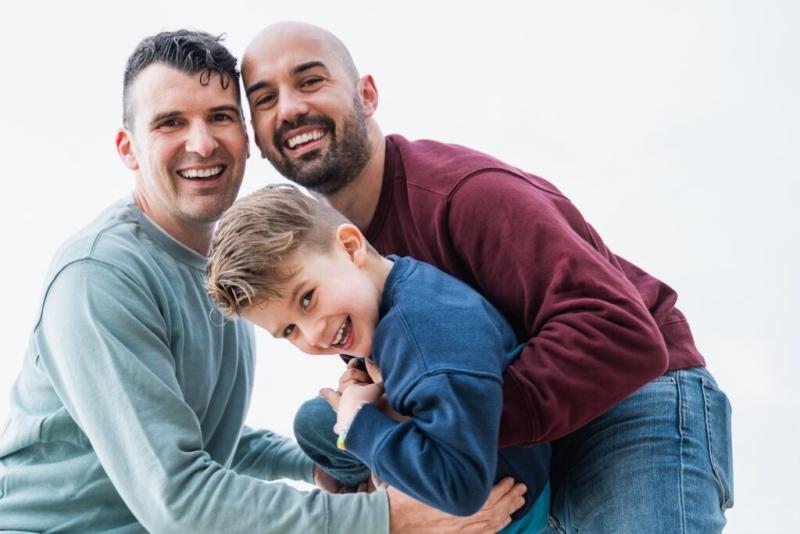
A researcher is challenging the popular image of gay dads in North America—as white and affluent. But even though this stereotype isn’t reality, it has real-world effects on gay men and their families, says Erez Aloni, an associate professor at UBC’s law school.
A gay dad himself, Aloni analyzed data from the U.S. and found there may be a systemic wealth gap among gay fathers. He says the same disparity likely exists in Canada, but very little data exists to study it.
“When you look at the statistics, you find something very interesting,” Aloni says in an interview. “In the US for gay people it’s more likely that if you’re from a racial and ethnic minority to be a dad than if you’re a white person, so this idea that all gay dads are white and affluent, or are white, is absolutely not true.”
He continues to explain that gay men face “many, many barriers” when starting a family, most of all cost, and racialized gay dads could also be subject to a racial wealth gap, for example—hence the wealth disparity between gay fathers.
Aloni found five major factors that lead to the wealth gap among gay dads, outlined in his paper “Rich Dad, Gay Dad: The Wealth Traps of Gay Parenthood.”
They include high surrogacy and adoption costs; legal recognition expenses; parental leave policies; discrimination in housing and borrowing and limited support from families of origin.
While most of the data in Aloni’s research comes from the U.S., he says in Canada “there is enough data to show that same-sex male couples are being discriminated against in the area of lending, mortgage and housing. There is enough data to show that some gay parents have experience of being disowned or estranged from their families of origins.”
In order to combat this gay dad wealth gap, Aloni suggests more inclusive parental leave policies and expanded in-vitro fertilization coverage.
In addition, Aloni says there needs to be more research done on gay fatherhood in Canada in order to address the wealth gap and challenge the affluence stereotype.
“It’s harmful not to have this kind of data,” he says. “For example, how can we measure what’s the effect of such a wealth gap if we don’t know exactly who they are?”
He also encourages people to question the status quo of what it means to be a parent.
“I’ve experienced things like going to sign my daughter up to daycare and the form requiring the name of the mother and the father, or people saying my daughter needs her mommy when she’s crying in public,” Aloni writes.
“So I think it is important for people to recognize the existence of gay dads and understand that their lives are more complex than the commonly perceived image.”